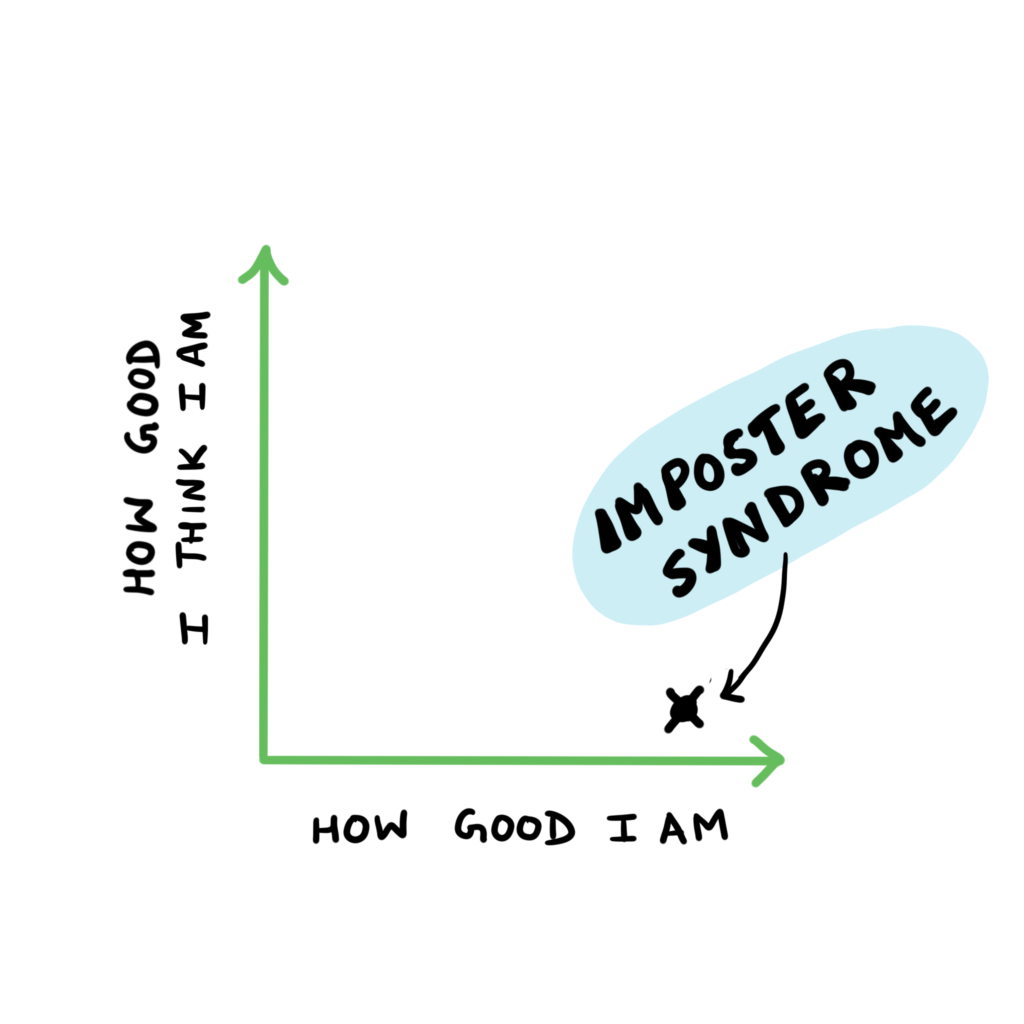The good news first. If you find yourself relating to this post you are probably a high achiever.
High achievers thrive on their achievements. While power, wealth and fame may also be strong motivators too, the high of delivering a difficult outcome is unmatched. The world of a high achiever is also very different from that of an average performer. There is a lot more activity and a very strong commitment to the outcomes. Most high achievers thrive in high-speed, high-stress environments.
Not every high achiever is built equal. The stress threshold may vary based on an individual’s skills, beliefs and identity. Irrespective of where the threshold lies, every achiever carries within them the fear that they have either reached this threshold, are about to reach this threshold or have crossed this threshold. This is where “Imposter Syndrome” takes control.
Imposter Syndrome, as the name suggests implies feeling like a fake.
This may manifest in various ways, the most common one being, where a person feels that they don’t deserve the success they have achieved and feel like a fraud. . This results in the person being afraid to take on more responsibility because they feel that they do not have the right skills or ability to deliver the results needed.
While these self-doubts are going through their head the person may continue to act as an achiever, which in turn continues to feed the feeling of being fake. This becomes a vicious cycle till the person becomes convinced that they are no good and start operating from this belief, often severely damaging their performance and career.
Do any of these apply to you?
- You secretly attribute your success up to luck, timing, or error
- You worry about making your work perfect. And even small flaws are hard to accept.
- You see criticism as proof of your impending failure.
- You can almost foresee not being able to handle the next big thing though everyone around you keeps reminding you of how good you are at what you do.
- When you succeed you feel like you fooled them or it was a mistake someone made.
- You worry that it’s just a matter of time before you’re “found out” for a fraud”.
If any of these feel relatable you may be impacted by Imposter Syndrome.
Why does imposter syndrome happen?
Imposter Syndrome is the domain of high achievers.
- Aiming for perfection: When you are constantly in the limelight and expected to meet the high standards that others and you set for yourself there is a point where being “perfect” starts taking a toll. No one is perfect. And when you start believing that you “should” be, you are setting yourself up for disappointment. For most high achievers disappointment is often followed by depreciating self-talk. In an era, where we only share the best pictures on our online profiles, accepting that life is made up of imperfections can be difficult.
- Belief about self-worth: Some achievers start out with a vision of success but reality proves that they are worth more and they go ahead way faster than they anticipated. This can be disorienting. Accepting and internalizing your achievements may become difficult if you are not ready. What also happens is that the beliefs and behaviors that worked for you when you were starting out stop working as their responsibilities grow and change.
- Comparison with those who seem to know it all: If someone else seems to be handling the same job with ease and finesse it can be intimidating. With this comparison, you end up focusing on what the other person has that you don’t, instead of realizing that you do have your own strengths to rely on. Unknown to you the other person may be dealing with their own imposter syndrome. They may just be very good at putting up a brave front.
- Comparison with those who haven’t made it: When you move ahead fast you leave a lot of people behind. This can make you wonder, if they haven’t made it maybe you shouldn’t have either. Often meeting these people can also be difficult if you don’t know how to behave around them or if these people are jealous of your success.
What are some ways to deal with Imposter Syndrome?
- Acknowledge your feelings: Start with reflecting and acknowledging your feelings. You may encounter fear, frustration, stress and even shame. Accepting what you feel is the first step to fixing it.
- Look back on your success path and recall your success strategies: When you started on your success journey recall what your mindset was. Did you really know everything you needed for the job or did you learn along the way? Did you “always” get it right? How many of those behaviors can you implement today?
- Accept your worth: If you have made it this far remember that it means you are better than the average crowd. When you feel that your success is undeserved remember you are not expected to know everything. You are better than those around you. And that is why you have achieved your success.
- Look at changing beliefs that don’t work: What are your beliefs about your current job? Is it too hard and needs too many skills? What about your beliefs about yourself? Do you feel you don’t have what it takes to do this job? Are you afraid to fail and look bad? If required work with a good professional coach to develop mental strategies to change limiting beliefs.

